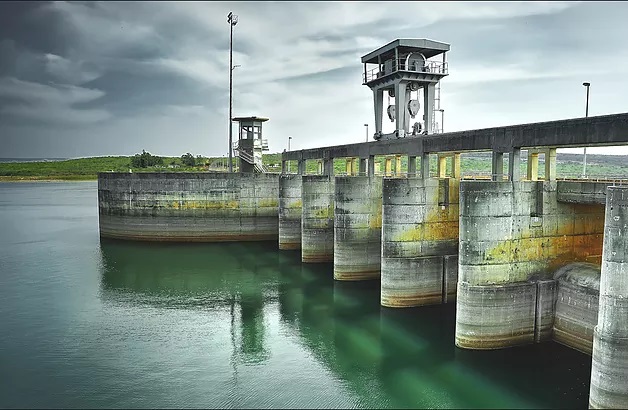Mozambique: UIR officers reportedly killed in Cabo Delgado ambush
Pequenos Libombos reservoir remains critically low – AIM report

File photo / Pequenos Libombos dam
The level of water in the reservoir behind the Pequenos Libombos dam, which supplies the drinking water for the Greater Maputo Metropolitan Area, has fallen from 20.14 per cent in January to 19.8 per cent on Friday.
While this is better that the level of 13 per cent recorded in January 2017, it still means that restrictions on water supply are bound to continue.
The head of the Water Resource Department in the Ministry of Public Works, Agostinho Vilanculos, told reporters on Friday that the reservoir is down to its reserve level. The forecast is that it can continue to provide drinking water to Maputo until November this year, but with restrictions.
The dam is located on the Umbeluzi river. The river flows from the dam to the Umbeluzi pumping and treatment station, on which most of the population of Maputo and Matola cities and Boane district depend for their water supply.
The use of Umbeluzi water for irrigated agriculture has already been banned, with a severe impact on the banana plantations in the Umbeluzi valley.
In January 2017, a system was introduced whereby water was pumped to each neighbourhood in Maputo, Matola and Boane on alternate days. This severely prejudiced some areas, and the current system is to pump every day, but only 80 per cent of what would be normal.
Recent heavy rains in Maputo and Matola have not improved the situation much. What is required is a great deal more rain upstream, in Swaziland and in Namaacha district. If the rains continue to fail for the rest of the current rainy season, which ends in March, then the restrictions on water supply will be increased, Vilanculos warned, to ensure that there is at least some drinking water left in the reservoir by the time the 2018/2019 rainy season starts.
Alternative sources of water for Maputo are being investigated. The most likely are other dams in Maputo province, notably the Corumana dam on the Sabie river. Bringing Corumana water to Maputo would require heavy investment in a new pipeline.
The possibilities of using lakes and of extracting more ground water are also under investigation.
“Work is under way to see if we can overcome the water deficit” , said Vilanculos. “Measures are in hand, and I think they could be announced in the near future”.
He also urged the public not to waste water. Nobody should water lawns, for example. Vilanculos added that, where possible, households should use their gutters to harvest rain water.












Leave a Reply
Be the First to Comment!
You must be logged in to post a comment.
You must be logged in to post a comment.